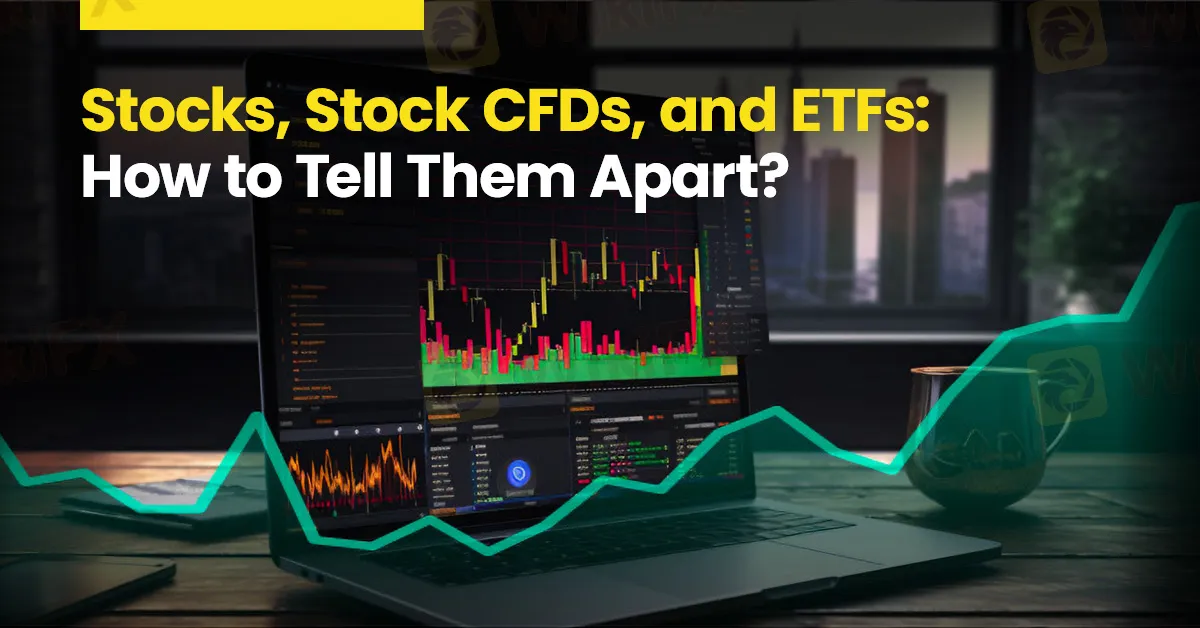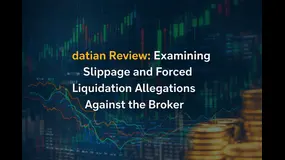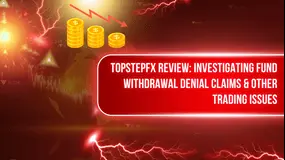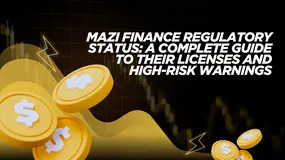Abstract:In the world of investing and trading, three common instruments often come into focus: stocks, stock CFDs (Contracts for Difference), and ETFs (Exchange-Traded Funds). While they all offer avenues to engage with the financial markets, they differ significantly in their structure, trading methods, and associated risks. This article thoroughly explains their differences to help you make informed decisions when choosing your preferred trading instrument.

In the world of investing and trading, three common instruments often come into focus: stocks, stock CFDs (Contracts for Difference), and ETFs (Exchange-Traded Funds). While they all offer avenues to engage with the financial markets, they differ significantly in their structure, trading methods, and associated risks. This article thoroughly explains their differences to help you make informed decisions when choosing your preferred trading instrument.
In the world of investing and trading, three common instruments often come into focus: stocks, stock CFDs (Contracts for Difference), and ETFs (Exchange-Traded Funds). While they all offer avenues to engage with the financial markets, they differ significantly in their structure, trading methods, and associated risks. Understanding these differences is crucial for making informed investment decisions.

Stocks represent ownership shares in a company. When you purchase a stock, you are essentially buying a piece of that company. This ownership comes with certain privileges and responsibilities. Shareholders may receive dividends, which are portions of the company's profits paid out to them. Additionally, stockholders often have voting rights, allowing them to influence corporate decisions.
Stocks are traded on stock exchanges such as the New York Stock Exchange (NYSE) or NASDAQ. These exchanges provide a regulated environment where buying and selling occur. However, owning stocks comes with risks. Market risk is a primary concern, as the value of stocks can fluctuate widely based on company performance, economic conditions, and broader market trends. Liquidity risk is another factor, as some stocks might be difficult to sell quickly without affecting their price.

A stock CFD is a derivative that allows traders to speculate on the price movement of a stock without actually owning the stock itself. This financial instrument offers unique characteristics, including the use of leverage. Leverage enables traders to control a larger position with a smaller amount of capital, potentially amplifying both gains and losses.
Unlike stocks, CFDs do not confer ownership of the underlying asset. Instead, traders are merely speculating on price changes. This makes it easier to profit from falling prices, as CFDs facilitate short selling. Additionally, CFDs can often be traded outside regular market hours, providing greater flexibility.
However, trading CFDs carries significant risks. Leverage can lead to substantial financial loss if the market moves against the trader's position. Counterparty risk is also a concern, as CFDs are typically traded over-the-counter (OTC) through brokers, posing the risk of broker default. Market risk remains a factor, with the value of CFDs fluctuating based on various market conditions.

Exchange-Traded Funds (ETFs) are investment funds that hold a basket of assets, such as stocks, bonds, or commodities, and are traded on stock exchanges like individual stocks. One of the key advantages of ETFs is diversification. By holding a variety of assets, ETFs can reduce risk compared to investing in individual stocks.
ETFs are known for their liquidity, as they can be bought and sold throughout the trading day at market prices. They come in various types, including those that track indexes (e.g., S&P 500), sectors (e.g., technology, healthcare), commodities, or specific investment strategies. ETFs are generally cost-effective, often featuring lower expense ratios compared to mutual funds due to their passive management.
Despite their advantages, ETFs are not without risks. Market risk is inherent, as the value of ETFs can fluctuate based on the performance of the underlying assets. Liquidity risk may also be present, especially in ETFs with lower trading volumes. Additionally, tracking error is a consideration, as ETFs might not perfectly mirror the performance of their underlying index due to fees and other factors.
In summary, stocks, stock CFDs, and ETFs each offer distinct opportunities and challenges for investors and traders. Stocks provide direct ownership in a company, along with potential dividends and voting rights. Stock CFDs allow for speculation on price movements without ownership, often involving leverage and additional risks. ETFs offer a diversified, cost-effective way to invest in a basket of assets, traded like stocks on an exchange.
Understanding these differences is essential for selecting the right instrument to align with your investment goals and risk tolerance. Whether you seek direct ownership, speculative trading, or diversified exposure, there is a financial instrument suited to your needs.













